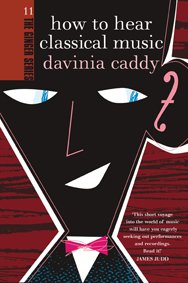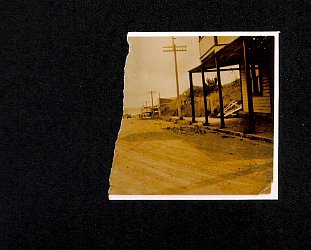Graham Reid | | 2 min read
The Royal Philharmonic Orchestra: Hooked on Mozart

At the height of Beatlemania when they realised the earning power of their songs, John Lennon and Paul McCartney would, according to the latter, sit down and say, “Let's write a swimming pool”.
And when Sammy Cahn (1913-95, lyricist for scores of Broadway and Hollywood songs) was asked which came first, the words or the music, he always quipped, “the phone call”.
Such pragmatism when it comes to money is perhaps to be expected in the world of the jobbing songwriter.
But hold hard. Who said, “My sole purpose is to make as much money as possible, for after good health it is the best thing to have”?
That was Mozart and this apparent heresy in the rare air of the classical world is dropped casually in this insightful, funny and frequently provocative little book by Caddy, a senior lecturer in music history and theory at the University of Auckland's School of Music.
With a populist touch and musical examples to make you curious, Caddy takes a personal journey through classical music asking questions as she goes. Why do we need concert halls which force us to sit unmoving in our seats? Where does classical music exist in the real world today? (Answer: when you're on hold and the phone plays Vivaldi endlessly). What's wrong with that Hooked on Classics album from 1981 which added dance beats to some of the old favourites?
In search of answers Caddy takes the reader down interesting byways and music history, explains the ritualisation of the concert hall experience – off-putting to so many – only began in the 18th century, and that there is more interesting on-hold music than Vivaldi. Her own historically inclusive selection, with pithy explanations, includes Copeland, Puccini, Ennio Morricone's soundtrack to Once Upon a Time in the West and Stravinsky's Study for Pianola.
She repeats Robbie Burns' famous quip about opera (“where a guy gets stabbed in the back, and instead of dying, he sings”) but turns it into a defense and explanation of the importance and rewards of that complex art.
Along the way she leads the reader on a lively dance through concert programming and how even the dullest can be listened to creatively (she gives tips); composers, performers and ensembles which have reinvented classical music for new audiences; why she listens to certain music when doing yoga; and how that often bewildering modern classical music can be explored and enjoyed, even if some of it does sound like an endurance test.
Caddy writes about all this and more in pages which are sprinkled with references to the world beyond the lecture theatre or concert hall -- Britney Spears, You Tube, Dire Straits and Dallas (“I'm a child of the Eighties”), “the clit-lit” sensation that is Fifty Shades of Grey”, the current trend for gloom-doom pop culture – but always comes back to the rich world of classical music with its heroes, heroines, troubled souls and gifted innovators.
Another in Awa Press' popular “Ginger” series – which has included Steve Braunias' How to Watch a Bird, Kevin Ireland's How to Catch a Fish and Spiro Zavos' How to Watch a Game of Rugby – this title is aimed at curious and casual readers alike.
And by the way, there's nothing wrong with that cheesy but popular Hooked on Classics album because it reminds us classical music was (and could be again?) popular music. Like the Beatles and Sammy Cahn, one of its most famous sons knew you had to meet the demands of the audience and your employer.
Mozart – among others -- was happy to oblige. And take the money.





post a comment